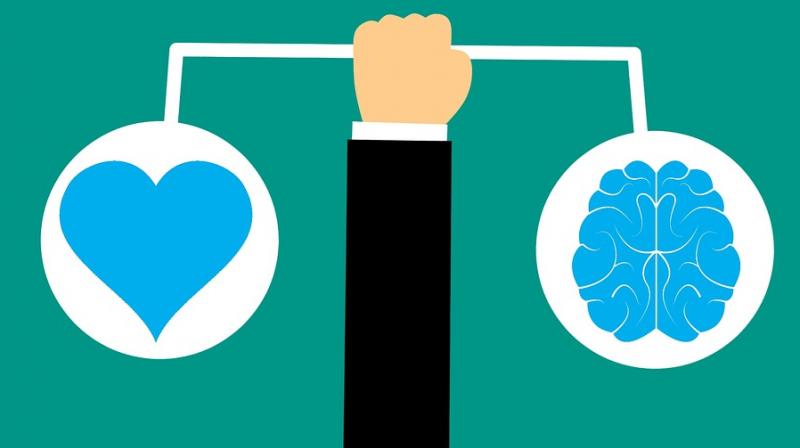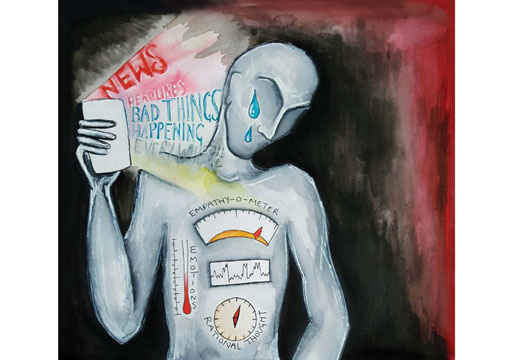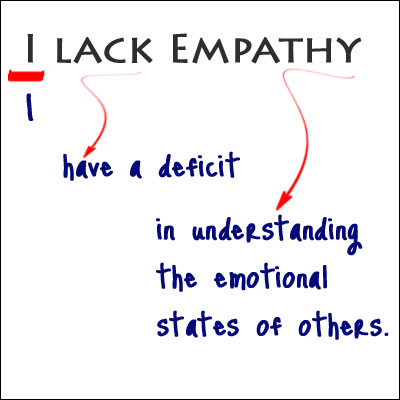We all know that empathy is the ability to understand and share the feelings of another. It’s also important for us as humans to be able to empathize with others because it helps us establish relationships, communicate more effectively, and simply get along better in day-to-day life. But what happens when we lack empathy? Do we ever stop caring about how someone else feels? This blog post will explore low levels of empathy and practical tips on how you can develop your level of empathy.
Contents
Lack Of Empathy: Is it Possible?

Yes, it is possible to lack empathy. Several signs can indicate low levels of empathy. If you answer yes to any of the following questions, then you may want to explore your ability to empathize further:
- Find it difficult to understand how someone else feels?
- Have a hard time seeing things from someone else’s perspective?
- Have trouble imagining how your actions may affect other people around you?
- Find it hard to show empathy for others when they experience tough times, making it difficult for the person to rely on your support and comfort in their time of need?
If so, then you might be lacking empathy.
Understanding Empathy

To increase your level of empathy, it’s important to understand exactly what empathy means and why it’s so valuable in our relationships with others. The first step you can take towards increasing your empathy levels is understanding the true definition of this term.
“Empathy is a kinder, much less judgmental way of putting yourself in another person’s shoes to understand how they feel and think about the world.”
As you can see, empathy does not mean that you have to necessarily agree with everyone or approve of their choices. It simply means being able to respect someone else’s feelings even if your opinions are different from theirs.
Types of Empathy
There are three major types of empathy.
Cognitive Empathy
Cognitive empathy is the ability to imagine what someone else might be thinking or feeling. This type of empathy involves being able to recognize and understand another person’s mental state, feelings, emotions, ideas, beliefs, etc., even if they are different from your own.
Emotional Empathy
Just as it sounds like this form of empathy involves being able to share in another person’s feelings by actually experiencing their emotions.
Affective Empathy
This is the ability to respond with an appropriate emotion after recognizing what someone else may be feeling or thinking. It also means that you can recognize how your words and actions will affect other people so that you can adjust your behavior accordingly.
Compassionate Empathy
This type of empathy is a combination of cognitive and emotional empathy. It’s the ability to feel compassion for someone else after understanding their situation and feelings.
Can You Have One Type of Empathy Only?
Some people might only be able to experience one type of empathy, while others may have a more well-rounded range of empathetic abilities. For example, you might be very good at recognizing and understanding what others are feeling. But not as able to feel emotions like sadness or joy on your own. Or vice versa. You may experience emotions easily but have a harder time imagining how the world looks through the eyes of another person.
Signs Of Low Empathy

Now that you understand the different types of empathy, it’s easier to spot when someone may be lacking in this ability. The following are signs of low empathy:
- Have a hard time considering other people’s feelings before making decisions.
- Find it difficult to put themselves in another person’s shoes.
- Often make insensitive or hurtful remarks.
- Have a hard time relating to people who are different from them.
- Don’t feel the need to comfort or support others in their time of need.
- Seem cold and uninterested in other people’s lives.
NOTE: You might find it difficult to connect with other people, have fewer close relationships, feel like you’re always “in your head,” or seem uninterested in the lives of those around you. You may also struggle with taking on another person’s perspective and feeling motivated to help or support others in their time of need.
Common Causes for Low Empathy

Lack of empathy can be caused by a variety of different factors, including mental health disorders or other conditions. Some people may have an innate lack of ability to empathize with others due to the wiring in their brains.
However, there are also some common causes for low levels of empathy that we all face from time to time:
Depression and anxiety disorders
Although some people indeed experience higher levels of empathy when they are struggling with depression or anxious feelings, others may struggle to feel any sort of empathy for their loved ones. This is because highly empathetic individuals may find themselves overwhelmed by the emotions and feelings they feel while watching their spouse or child go through a tough experience.
Trauma
People who have experienced a traumatic event in their lives, such as physical or sexual abuse, may find it difficult to empathize with others because they can often feel disconnected from their own emotions and experiences.
Lack of Social Interaction
Some people may not be able to develop empathy because they don’t have enough opportunities to interact with others. Lack of social interaction can be caused by a variety of different factors, such as living in a rural area or being isolated from the rest of society for some other reason.
Practical Tips for Developing Empathy
Now that you understand what empathy is and some common causes for low levels of empathy, here are some practical tips for how you can start to develop this essential skill:
Put Yourself in Other People’s Shoes
One of the best ways to start developing empathy is by trying to see things from other people’s perspectives. This means that you should take the time to understand their thoughts and feelings, even if they are different from your own.
You can do this by asking questions, listening actively, and trying to understand things from their point of view. This can be especially helpful when you conflict with someone or having a difficult conversation.
Listen Actively
One simple way that you can start developing your empathy is by becoming better at listening while someone else shares something from their life. This means that you should avoid interrupting them, wait until they are finished speaking, and make an effort to understand what they are saying.
You can show that you’re listening by paraphrasing back what the other person has said, asking questions about their story, or reflecting on how you would feel in a similar situation.
Show Compassion
When you feel compassion for someone else, it’s a sign that you can empathize with them. You can show compassion in a variety of different ways, including simply being kind and understanding when they share their experiences or by offering to help out if you’re able to do so.
Empathize with People Who Are Different From You
While you may struggle to empathize with people who are different from you. It’s important that you still make an effort. This means taking the time to understand their life experiences, even if they are quite different from your background or what you’re familiar with.
How To Know If You Lack Empathy
If you’re not sure whether or not you lack empathy, here are a few signs that may suggest that this is the case:
- Don’t feel sympathy for other people when they experience difficult situations.
- Find it difficult to understand what others are feeling.
- Trouble putting yourself in other people’s shoes.
- Find it difficult to communicate with others.
- Don’t feel the desire to help others in need.
If you can relate to a few of these signs, then there is a good chance that you could benefit from working on your empathy skills. Just remember that everyone experiences empathy differently and that there is no “right” level that you should be at.
Is It Possible to Lack Empathy?

While everyone can’t have high levels of empathy, there are some cases where people struggle with this skill. This includes individuals who suffer from autism spectrum disorder or Asperger syndrome, which can make it difficult for them to relate and interact with others.
If you think that you have a medical condition that prevents you from being able to develop empathy. Then it’s best to speak with your doctor or visit a therapist to get the right treatment plan for this problem. However, if there isn’t an underlying issue preventing you from developing empathy, then it may be something else entirely. In these cases, there are a few things that you can do to start working on this essential skill.
Conclusion
Developing empathy is an essential skill for all of us. Whether you’re trying to get ahead in your career or simply want to be able to connect more with the people around you.
Once you understand what it means and how it can benefit your life. You’ll start noticing that these changes will impact every area of your world.
So, if you’re looking for a way to make yourself a more compassionate and understanding person. Start working on your empathy skills today. You’ll be glad that you did!
For more information, please contact MantraCare. Relationships are an essential part of human life. It is the connection between people, and it helps us to form social bonds, understand and empathize with others. If you have any queries regarding Online Relationship Counseling experienced therapists at MantraCare can help: Book a trial therapy session


